Kurdish women are getting involved in the peace process to promote a free, equal and democratic society. [Read part one here.]
An unknown, yet significant dimension of Kurds in Turkey is the involvement of thousands of women in the peace process. When it comes to conflict, there is a tendency to see women through a simplistic prism of victims. However, women may — and often do — play a proactive role in war, sometimes as combatants or peace negotiators.
In order to explore this issue, Fair Observer’s Clotilde de Swarte continues her conversation with Elodie Sellar, who is currently conducting research on the women’s movement in Turkish Kurdistan. They talk about the women involved in the Kurdish peace process, the nature of their role and the impact of their actions.
Clotilde de Swarte: You mentioned in our earlier conversation that a key incentive for women to get involved in the peace process is the sentiment of being trapped “in an infamous double bind” — combining the two labels of “women” and “Kurdish.” What is their official goal?
Elodie Sellar: For the time being, the objective is to have their rights and identity respected, and to put an end to the brutal and violent oppression that Kurds have faced. Furthermore, these women would like to see a devolution process for the Kurdish region in Turkey — or to use their words, “democratic confederalism.” This implies that every ethnicity, identity and people would have their own autonomy within the Kurdish region.
According to Kurdish women, this idea stems from the fact that they do not want to reproduce the Turkish state in the Kurdish region, whereby one ethnicity or identity would dominate, hence the idea of having each group granted its autonomy, which amounts to democratic confederalism. In the long-term, there is still hope of a reunification of the four Kurdish territories [in Turkey, Iraq, Iran and Syria] and independence.
De Swarte: What are their means of action?
Sellar: There are three main areas. First, Kurdish women protest a lot. In any Kurdish protest, you will always see a substantial amount of women, and not just politicians. During protests, it is important that women make themselves visible in the public eye. It carries a strong message and, in addition, they always wave the Democratic and Free Women’s Movement’s (DOKH) symbol on flags, which allows them to make their movement visible and known.
Second, Kurdish women employ a variety of other means in the peace process. For instance, they always try to cement ties with other women, including Turkish. They hold various conferences and meetings, some of which are broken down into specific ones for different groups of women.
I feel this shows the maturity of their movement because there is a tendency to view and/or present women as a homogenous and often victimized group. This portrayal is essentialist and, thereby, debilitating for the wide variety of women. So, having a variety of meetings allows each group to convene and discuss issues before meeting in a wider conference for DOKH.
In fact, the Turkish state is overtly hostile to the challenge these women pose to patriarchal order. As a result, repression faced by these women is ruthless: arbitrary arrest, torture, rape and assassinations. Today, 70% of DOKH’s leaders are in prison.
— Elodie Sellar
Third, DOKH has even held women’s conferences for those all over the Middle East. As I said during our previous conversation, this is another thing that DOKH is trying to achieve: peace for the wider region and freedom for Middle Eastern women. So these conferences are really important for bringing women of the region together, in order to create an organized, coherent and united front.
De Swarte: To what extent are their claims gender-related?
Sellar: Almost all their claims are gender-related. For these women, there can be no free and peaceful Kurdistan without free Kurdish women. The very essence of this peace process for women is achieving freedom for themselves as well, without which peace in itself is unachievable. They are generally geared toward helping women to be free and independent, by giving them opportunities to have spaces where they can discuss their problems, needs and interests.
DOKH has fought enormously for women. For example, if a woman is sexually or physically abused, its members will organize massive protests and help the victim seek justice. Of course, this is not directly related to the peace process, but DOKH has been going for a long time. It has made gender-related claims for a while and, in the peace process, the same gender-related claims apply.
De Swarte: What role do women play in the peace process?
Sellar: In the peace process with Turkey, women play a central role. To explain why, I will take a step back and briefly talk about women’s participation in peace processes.
In short, there are generally two prevailing theories on the topic. First, that women are involved through their presence in civil society, therefore, a bottom-up view of change. Second, that women need to be involved in the political process, which is a top-down approach. However, in my opinion, you need change coming from both directions. This dynamic of both spheres working together is very important as it enables a socialization of peace at a grassroots level, as well as the implementation of women’s needs, interests and demands at the formal negotiating table.
I interviewed women from civil society and politics to test this theory on the importance of having them involved in both spheres of the peace process. They are heavily involved at a grassroots level, thanks to the work of DOKH, while they are also present in political negotiations.
The reason they are involved in negotiations is due to the immense change that DOKH has effected in the political field. In the Kurdish Peace and Democracy Party (BDP), there is a quota of 50% for women, which is respected. Women also have their own branch within the BDP. There are always two leaders in the BDP — one is a man and the other is a woman. As a result, women are not invisible in political negotiations. They are always present in large numbers, so they have a say.
When it comes to conflict, there is a tendency to see women through a simplistic prism of victims. However, women may — and often do — play a proactive role in war, sometimes as combatants or peace negotiators.
— Clotilde de Swarte
Kurdish women have an influential role in how the peace process is conducted. For example, the ruling Justice and Development Party (AKP) announced that it would set up a truth commission. However, there were going to be no women present in this commission, so Kurdish women refused to let it go ahead without their involvement. So again, women have an influential role in the peace process, in ensuring that both genders are represented.
De Swarte: What are their relations with men? Do women work hand in hand or is there rivalry between sexes?
Sellar: In general, women and men work hand in hand in the peace process. As I have explained previously, the political structures of the BDP mean that both are equal. This is undoubtedly a result of harmonious relations. I conducted an interview with a male politician of the BDP who admitted that men’s contribution had been to change their perception of women and to change themselves. He also said this stemmed from women’s work — that women had taken all these initiatives and pushed for change relentlessly and successfully.
Of course, the question of equality between women and men takes a very long time to change and things are not perfect. In society at large, there are plenty of men who still resent women’s emancipation — probably more in rural than urban areas, as is usually the case.
However, it is important to point out that there are female political leaders in the BDP and at municipal levels, and no one challenges this. It has been fully accepted by Kurdish society, which is a huge change. The notorious “glass ceiling” has not really been broken anywhere. So I think what makes Kurdish politics in Turkey different is that actual structures of the political party have been changed to ensure equality between women and men.
Therefore, in general, I would say at the political level there are not rivalries between women and men. Of course, in society there are men who do not agree with women’s emancipation, but they are gradually accepting the idea of female leaders in politics. And they have certainly accepted that women play a significant role in the peace process and that is already a huge step.
De Swarte: Being members of a minority group related to the Kurdistan Workers’ Party (PKK), which is considered by many as a terrorist organization, is complicated. What are the difficulties and problems these women encounter?
Sellar: The picture is not entirely rosy and Kurdish women still face obstacles — mainly three of them. First, there are obstacles emanating from Kurdish society in general. Although women have succeeded in raising their profile in society and reaching an equal representation in politics, this has yet to be accepted by all. Nevertheless, this is a minor obstacle as most Kurds in Turkey support the Kurdish women’s movement. I believe this is because DOKH has successfully sent the message that women’s freedom is fundamentally linked to Kurdish freedom.
The second obstacle faced by Kurdish women comes from the Turkish state, which is far from supportive of women’s rights in Turkey. In fact, the Turkish state is overtly hostile to the challenge these women pose to patriarchal order. As a result, repression faced by these women is ruthless: arbitrary arrest, torture, rape and assassinations. Today, 70% of DOKH’s leaders are in prison. In addition, any peace-building strategy that is undertaken is inevitably followed by a battle from Kurdish women to ensure representation.
The last obstacle is the lack of Turkish women involved in the peace process. This is due to the nature of Turkish state feminism, which has been co-opted by the ubiquitous cult of Turkey: the Kemalist ideology. As a result, Turkish women have portrayed Kurdish women as enemies of the state. Instead of concentrating on the destructive consequences of militarism and Kemalist nationalism, Kurds and Turks have tended to categorize Kurdish women as enemies, often linked to the PKK.
Due to this hostility, it is difficult for Kurdish women to create links with their Turkish counterparts and, therefore, create a gender-sensitive peace process. This defeats the purpose of talks. Nevertheless, the situation has slowly started to change, with some Turkish women coming forward and acknowledging the efforts of Kurdish women to create links with them.
However, these obstacles should not distract from the monumental progress Kurdish women have made, from their remarkable participation in the peace process, or their constant efforts to create solidarity with Turkish and Middle Eastern women. They have contributed a great deal in building peace and freedom for women and Kurds in Turkey, and for all those in the Middle East. So despite the resistance they still face, Kurdish women are in no way discouraged. If anything, they are emboldened. Their struggle is outstanding and brave, and carries a hopeful, peaceful and heart-warming message for all of us.
The views expressed in this article are the author’s own and do not necessarily reflect Fair Observer’s editorial policy.
Support Fair Observer
We rely on your support for our independence, diversity and quality.
For more than 10 years, Fair Observer has been free, fair and independent. No billionaire owns us, no advertisers control us. We are a reader-supported nonprofit. Unlike many other publications, we keep our content free for readers regardless of where they live or whether they can afford to pay. We have no paywalls and no ads.
In the post-truth era of fake news, echo chambers and filter bubbles, we publish a plurality of perspectives from around the world. Anyone can publish with us, but everyone goes through a rigorous editorial process. So, you get fact-checked, well-reasoned content instead of noise.
We publish 2,500+ voices from 90+ countries. We also conduct education and training programs
on subjects ranging from digital media and journalism to writing and critical thinking. This
doesn’t come cheap. Servers, editors, trainers and web developers cost
money.
Please consider supporting us on a regular basis as a recurring donor or a
sustaining member.
Will you support FO’s journalism?
We rely on your support for our independence, diversity and quality.



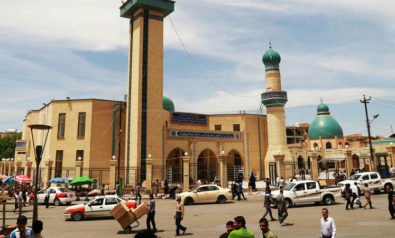

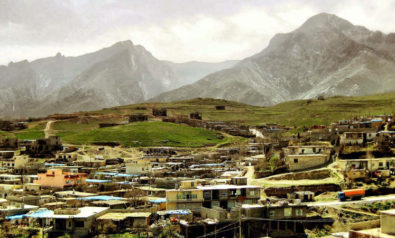


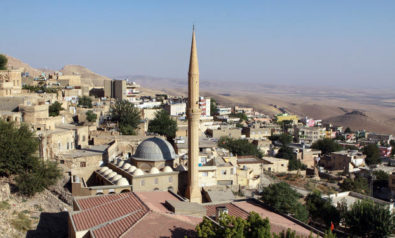
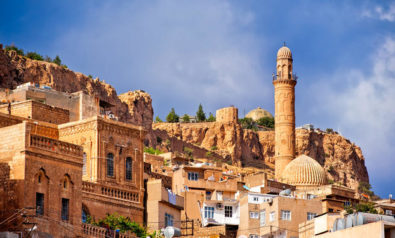
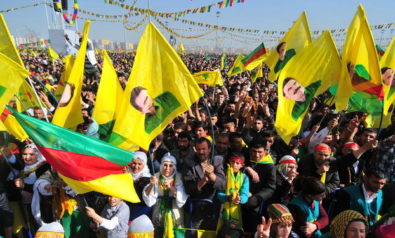
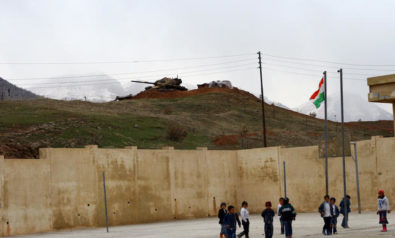

Comment